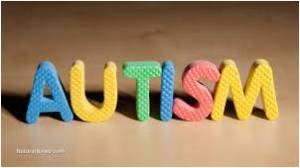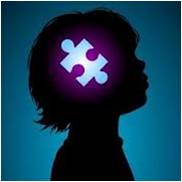Autism (or Autism Spectrum Disorders) is a complex neurodevelopmental disorder that affects the way a person views and interacts with the world around him. It is a wide spectrum disorder that challenges a person’s communication and interactive skills, which means that no two people with autism will show the exact same combination and degree of symptoms. Some may have mild symptoms whereas others will present severe symptoms. Although the condition occurs in both sexes, it is about 5 times more common among boys (1 in 42 boys) than among girls (1 in 189 girls).
Like most conditions that affect brain and behaviour, there is not an exact cause of autism, however autism risk factors can be narrowed down to genetic and/or prenatal causes.
GENETIC FACTORS: Genetic factors may be the most significant cause for autism spectrum disorders. The genetics of autism are complex and more than one gene may be involved in different individuals. Furthermore the genes may interact with each other or with environmental factors with differenct consequences and this could be the reason why the disorder has a wide spectrum. Several candidate genes have been located within which mutations increase the risk of autism and the study of these mutations remains an active research area.
PRENATAL ENVIRONMENT: The risk of autism is also associated with several prenatal risk factors which occur during pregnancy or delivery. Advanced age in either parent may increase gene mutations that lead to autism, use of psychiatric drugs by the mother during pregnancy, bleeding and diabetes could all contribute to the child been born autistic. Autism has also been linked to birth defect agents acting during the first eight weeks from conception, though these cases are rare.
With such a broad spectrum, the Autistic symptoms can only be identified in a person by looking at the various areas of life where a child with autism may behave differently. Some of these areas include:
SOCIAL SKILLS
People who have autism are socially clumsy. They have difficulty with social interaction and usually prefer to be alone to the extent of been uninterested in other people at all. The person with ASD might give the impression that he is talking at people, rather than with or to them because they hardly make any eye contact. In addition, autistic individuals are very likely to miss the subtle social cues used in everyday society. They are not the “people-kind” and seem to be in their own world mostly sometimes struggling with the playing and talking skills we have come to accept as a norm.
EMPATHY
An autistic child may also find it very hard to be aware of and understand the feelings of other people. Unlike most people, autistic individuals have a weaker ability to instinctively empathize with others. In spite of this, their ability to take other people’s feelings into account can improve tremendously if they are frequently reminded of this. Nonetheless, empathy does not come natural to most.
REPETITIVE BEHAVIOURS
Routine is one thing an autistic individual can get comfortable with. Most love to go through doing the same things over and over again, for example drawing the same picture again and again, page after page or jumping from one end to another again and again.
DEVELOPMENT
Autistic children do not develop at a relatively harmonious rate. It is common to find that while cognitive skills may develop fast, language skills may trail behind or while language may develop rapidly, motor skills are lacking. Social skills of an autistic child will not develop at the same pace as other people.
SPEECH
The higher the severity of the autism, the more affected the person’s speaking skills. They will often repeat words they hear (echolalia) and this is one way they learn to engage effectively with the surrounding environment.
PHYSICAL CONTACT
Some kids with ASD do not like to be cuddled or touched. Not all autistic kids are like this though; some will greatly appreciate a hug from a relative and may actually find more comfort in this than most other children will. In this case only a parent, carer or sibling will know best. One thing is for sure though, isolating an autistic child is never a good idea.
SENSORY SENSITIVITY
Some autistic children find loud noises unpleasant and quite shocking, the same can happen with some smells and sudden changes in light intensity. This level of sensitivity can be reduced by warning a child of of what is to happen, he or she can then cope with it better than when it happens out of the blue.
AUTISM IN GHANA
In Ghana having a child with autism is viewed by most as a curse on the family, or worse still in certain places the mother is labeled a witch which may cause mother and child to be shunned by certain quarters of society. A lack of education in this area means that many are not seeking the necessary help that they need; instead they are hiding these children at home, locking them up in their rooms. Many children in mainstream schools who have autism but can somewhat express themselves suffer discrimination and teasing from peers.
AUTISM AWARENESS CARE AND TRAINING CENTRE
The Autism Awareness Care and Training centre [AACT] Accra seeks to fill in this much needed gap in education and service provision. The centre was set up by Mrs. Serwah Quaynor about 15 years ago when she returned to Ghana from the USA after her son had been diagnosed with autism at age 2. At her return, searching for autism services for her child proved difficult, thus she began autism awareness in Ghana.
“Nortey, my son, was sixteen years old with raging hormones, many challenging behaviors, ranging from self-injurious behaviours, aggression and insomnia, to mention a few. Sleep at night was a luxury (I was lucky if I got two (2) hours). What was I to do in a country where there were no services for children with autism? I felt like an outcast, dejected, alone, and petrified!” Mrs. Quaynor explains. Since then, through fifteen years of service, it has assisted hundreds of children and their families. The centre provides many services and encourages inclusion into mainstream education and society. AACT’s training focuses on behavior management (which is the core of the entire training programme), functional academics, music and art therapy, speech and occupational therapy and life skills training. Resources to train these children simply aren’t available here in Ghana, however, the centre is fortunate to receive speech/language and occupational therapy resources from international volunteers. They use local materials like the dry seed of the flamboyant tree as music shakers and Djembes drums for drumming to teach music and dance.
The centre has been successful in spite of challenges such as unavailability and insufficient resources. They currently work with close to forty autistic people, ranging from preschoolers to young adults (Find out more about the centre here).
TIPS FOR RELATING WITH AN AUTISTIC CHILD
- Routines are easier to work with so establish them early and change them rarely.
- In the first moment you want to teach a new behavior you must use consistency and continuity or you will fail.
- Isolating an autistic child is never a good idea and only enforces their condition.
- Praise positive behaviour no matter how minute
- Involve them visually and physically, the more animated and fun the better
- Most of all be patient and know that there are other parents out there who could help you with any and all challenges
FAMOUS PEOPLE WITH AUTISM
With all this been said, there are many historical figures who are believed to have had varying degrees of Autism and have also been extremely gifted and talented. These include Wolfgang Amadeus Mozart [Composer], Sir Isaac Newton [Physicist], Albert Einstein[ Scientist], Michelangelo [Artist, Architect, Engineer, and Donna Williams [artist, sculptor, composer and screenwriter]


No comments:
Post a Comment